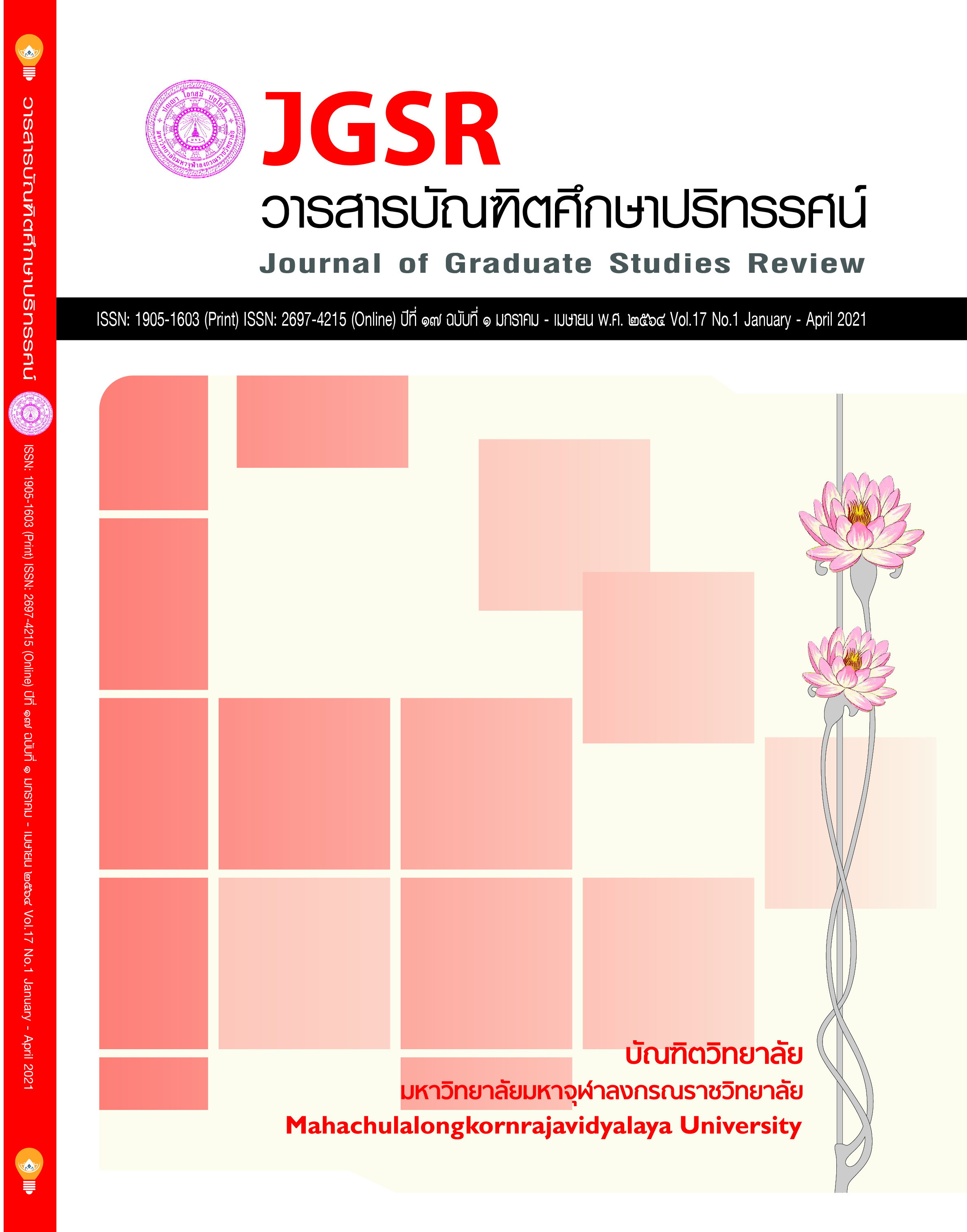Thailand's Industrial Recuperation In EEC Project Along With Applying Buddhist Principles To A Robust Corporate Social Responsibility
Main Article Content
Abstract
As a result of Thailand’s economic recession, its competitiveness in the world market had declined which affected the nation’s net exports and the population to remain stuck in the middle-income trap. The government initiates and pushes the EEC project with the aim of recuperating its industrial to be a key driver of the country's economy by defining 12 industrial groups to be developed. However, the overall problems of the Thai industrial sectors exist in many ways, such as the dependence on foreign countries, competitiveness, and problem of relocating investment bases, etc. The government, therefore, has found ways to revive the industrial sectors by various methods in order to expand and strengthen the nation’s industrial sectors such as investment promotion policy, research, and development promotion, foreign countries cooperation, etc. As soon as there is an expansion of the industrial sectors, there will lead to various problems in the communities related to arable lands, environment, pollution, and resources. Therefore, the concept of industrial development should coincide with the concept of corporate social responsibility in order for both the industrial sectors and the community will live together happily and the development will be sustained in a long run according to the Buddhist principle called Sangaha-Vatthu 4 (Four Principles of Service) refers to Dharma as the heart of the assisting each other, Dharma as an anchor to kindness, to become one and the same, and living together with love and goodwill for each other that will be considered as the true development.
Keywords: Industrial, Corporate Social Responsibility, Buddhist Principles
Article Details
บทความนี้เป็นความคิดเห็นส่วนผู้แต่ง กองบรรณาธิการไม่จำเป็นต้องเห็นด้วยเสมอไป
References
คงกระพัน อินทรแจ้ง. การเตรียมความพร้อมของอุตสาหกรรมพื้นฐานและโครงสร้างพื้นฐานของโครงการระเบียงเศรษฐกิจภาคตะวันออกจากการเปลี่ยน แปลงทางเทคโนโลยีที่ส่งผลกระทบอย่างรุนแรง (Disruptive Technology). หลักสูตรการป้องกันราชอาณาจักร รุ่นที่ ๖๐. วิทยาลัยป้องกันราชอาณาจักรไทย, ๒๕๖๑.
พระครูศรีปริยัตยารักษ์. “การนำหลักสังคหวัตถุ ๔ ไปใช้ในพัฒนาการบริหารจัดการขององค์กรบริหารส่วนตำบล”. วารสารธรรมวิชญ์, ๒(๒), หน้า ๓๑๘-๓๒๑, ๒๕๖๒.
สํานักงานคณะกรรมการนโยบายเขตพัฒนาพิเศษภาคตะวันออก. แผนปฏิบัติการการพัฒนาบุคลากร การศึกษา การวิจัย และเทคโนโลยี รองรับการพัฒนาเขตพัฒนาพิเศษภาคตะวันออก. กรุงเทพมหานคร : สํานักงานคณะกรรมการนโยบายเขตพัฒนาพิเศษภาคตะวันออก, ๒๕๖๑.
สํานักงานคณะกรรมการนโยบายเขตพัฒนาพิเศษภาคตะวันออก. ความคืบหน้าในการพัฒนาเขตพัฒนาพิเศษภาคตะวันออกตุลาคม ๒๕๖๒ - มีนาคม ๒๕๖๓. กรุงเทพมหานคร : สํานักงานคณะกรรมการนโยบายเขตพัฒนาพิเศษภาคตะวันออก, ๒๕๖๓.
สายจิตต์ พลอินทร์, เรืออากาศเอกหญิง. ยุทธศาสตร์การพัฒนางานวิจัย เพื่อรองรับเขตพื้นที่ระเบียงเศรษฐกิจพิเศษภาคตะวันออก (Eastern Economic Corridor). หลักสูตรการป้องกันราชอาณาจักร วิทยาลัยป้องกันราชอาณาจักรไทย, ๒๕๖๑.
โสรญา พิกุลหอม. ความต้องการแรงงานไทยในเขตพัฒนาพิเศษภาคตะวันออก (พ.ศ. ๒๕๖๑-๒๕๗๐) (ออนไลน์). เข้าถึงได้จาก: https://library2.parliament. go.th/ejournal/content_af/2561/aug2561-1.pdf [๒๕๖๒, ๘ ธันวาคม].
ภาษาอังกฤษ
Godfrey Adda, John Bosco Azigwe & Aboteyure Roger Awuni. Business Ethics and Corporate Social Responsibility for Business Success and Growth. European Journal of Business and Innovation Research, 4(6), pp. 26-42, 2016.
Mridula Goela, Preeti E. Ramanathan. Business Ethics and Corporate Social Responsibility–Is there a dividing line?. Procedia Economics and Finance, 11, pp. 49–59, 2014.

